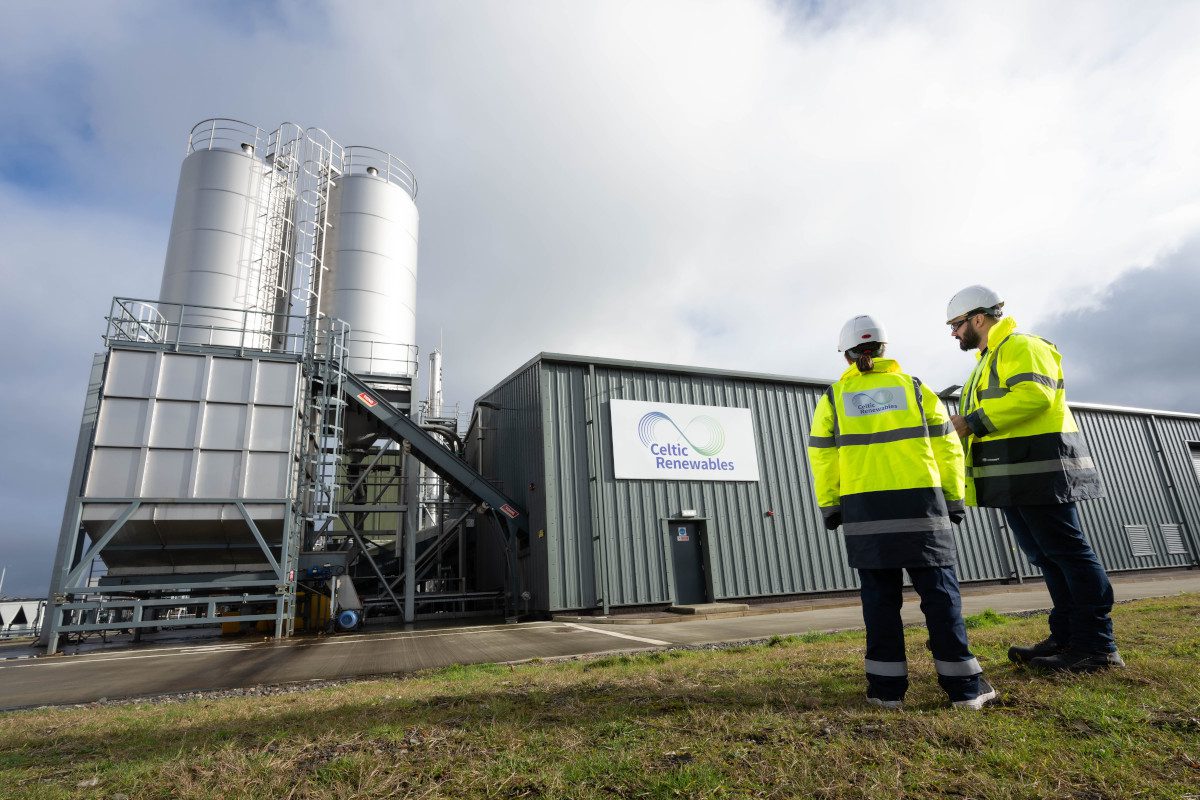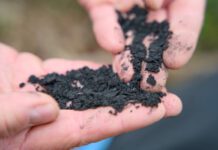
Scottish technology-led producer of green chemicals (including biofuels), Celtic Renewables, has launched its latest crowdfunding campaign with Crowdcube aiming to raise a minimum of £2.75 million to boost operational capacity and scale revenue growth.
Celtic Renewables is the first in the world to produce and supply green chemicals to lower the carbon footprint of thousands of products like cosmetics, paints and household cleaners, and has recently sent its first production of bioacetone and biobutanol to distribution partner, Caldic, a company that creates bespoke solutions for the food, pharma, personal care and industrial markets.
Funds raised from the Crowdcube campaign will be used to increase the global distribution of green chemicals, broadening the reach of products across multiple sectors where replacement of incumbent fossil fuel derived chemicals is most needed.
Celtic Renewables has plans to build a further four biorefineries in the next four to five years with a combined product output of around 32,000 tonnes per year.
Celtic Renewables makes its green chemicals at its flagship biorefinery in Grangemouth, Scotland. Their patented technology converts low-value by-products, residues and waste from a range of industries, such as food and drinks production, into high-value green chemicals.
These green chemicals, namely bioacetone, biobutanol and bioethanol, are chemically identical to and can directly replace their gas and oil-derived equivalents (acetone, butanol and ethanol).
Mark Simmers, CEO of Celtic Renewables, says: “The ultimate goal of this crowdfunding campaign is to allow us to scale what we are doing which will allow us to supply green chemicals to a long list of potential customers who are ready and waiting.
“The timing is right and many companies and industries are eager to make the change to reduce their dependence on fossil fuels. Our technology offers a commercially proven and green alternative for the production of key chemicals and will lower the carbon footprint of everyday products like skin creams, nail varnish, household cleaning products, paints, medicines and vitamins. We have the momentum and potential to accelerate the defossilisation of the chemical industry and make everyday life more sustainable for consumers.”
The production of acetone, butanol and ethanol contributes significantly to CO2 emissions in the chemical sector, accounting for 18% of total industrial CO2 emissions globally. Celtic Renewables’ production of bioacetone, biobutanol and bioethanol generates up to 70% less carbon emissions compared to petrochemical alternatives.
Simmers adds: “We are working closely with our strategic partner Caldic to develop a list of initial customers for our green chemicals. The challenge is that the demand is huge and our Grangemouth plant will only supply a small fraction of what we really need to produce, so the pressure is on to grow the business and build bigger production plants.”
Global markets for acetone and butanol are estimated at $6.63 billion and $16.5 billion respectively and growing, according to Future Market Insights. Celtic Renewables’ green chemicals have extensive applications spanning multiple industries and can completely displace petrochemical equivalents with an immediately addressable market of over $2 billion.
Bettina Brierley, Product Group Leader Caldic UK, says: “We have been waiting for a solution like Celtic Renewables for a long time. We don’t need to change consumer habits, but instead we can improve the products we make by ensuring they are not derived from fossil fuels.
“This is the first real innovation that I have seen in the chemical space that is truly green, not just greenwashed. The beauty of the product is that the chemicals are made from residue materials, not food competing crops. Our customers which include manufacturers of personal care and homecare products, are very excited by this.”
Simmers adds: “The other great news is that the raw material that we use to make our biochemicals – the residues, by-products or waste – is almost unlimited. The key is to build the next few plants and demonstrate their performance. Our model is scalable globally across industry sectors. We will continue to look at commercial opportunities and there are some really interesting chemical groups that in the future, also could be made biologically.”
Celtic Renewables says its mission is to foster a more sustainable chemical industry and has so far raised in excess of £55 million funding from multiple sources which was used to build the biorefinery in Grangemouth. With large commercial contracts in place, Celtic Renewables is now raising investment to scale up production to meet demand.







